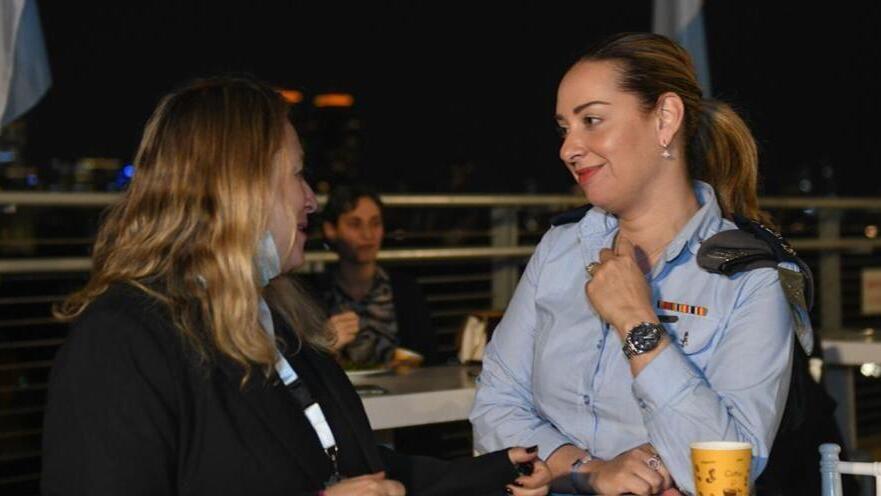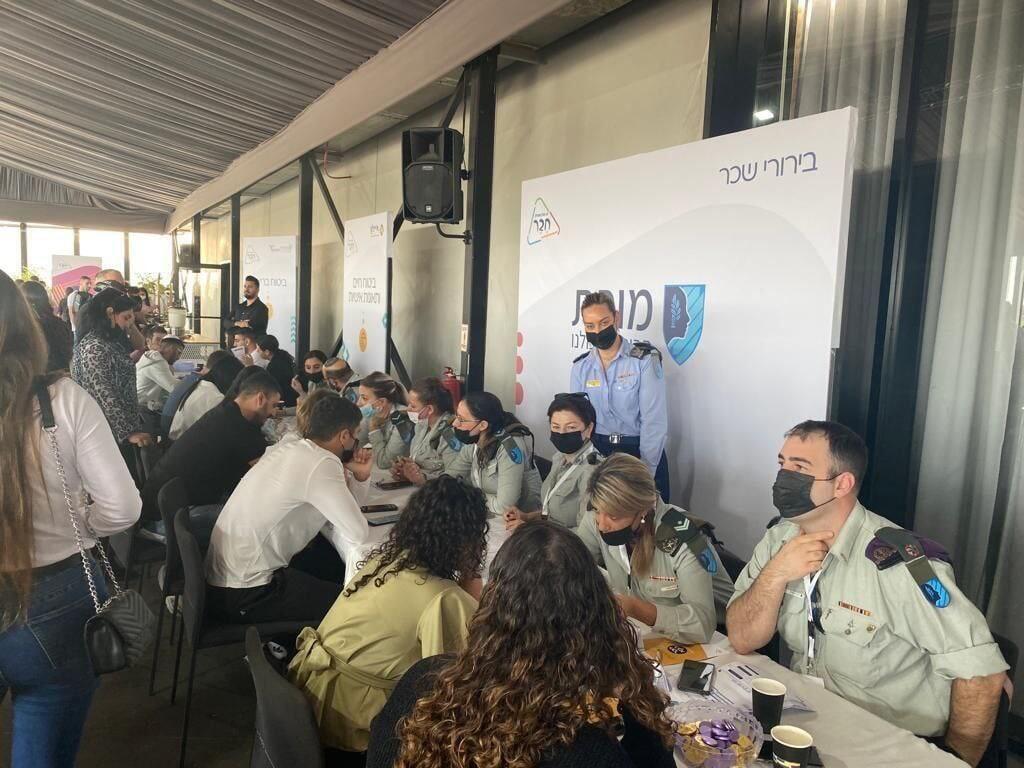Getting your Trinity Audio player ready...
The gray and old-fashioned office building in the Tel Hashomer IDF base that doesn't even have an elevator is far from reflecting the importance of the person occupying it - Colonel Galit Golan, who is finishing her tenure as the chief of one of the military's most vital units.
The Mofet unit that applies IDF's policy in the area of payment and pensions, welfare of the individual - which Golan commanded until recently - issues 315,000 pay slips every month, and affects personally every member of the IDF.
Before leaving her position, Golan told Ynet about her time in the unit and the reforms she worked on during her service.
Galit Golan began her journey in an intelligence operational position in the Israeli Air Force at a base in Tel Aviv. She then pursued academic studies through an army program, and from there continued to various roles in the air force.
Her work in the Air Force taught her the importance of getting to the bottom of every fault or mishap, for the purpose of truly improving and learning lessons for the future.
"We have a 'red team' that gives us criticism and identifies faulty processes. We're figuring out waiting times, getting rid of instructions that are becoming less relevant with the changing reality," she says.
Golan worked towards increasing the salary of long-term officers in the IDF, to increase the incentive for professionals to stay in their positions.
"We must improve the initial salary for officers, we're lacking many people who are simply leaving," says Golan.
Golan's unit understood the key to holding onto these professionals lies in the contentment of their families. She saw up close, cases in which the overwhelming workload of the position hurt the household dynamic of soldiers, especially among same-sex couples.
"There are dozens of same-sex couples in the IDF, including in the Air Force, in which both partners serve together," she says. "We made it clear to them that the IDF recognizes their partnership, that there is such a thing in the IDF registration forms. Now, there is a more open discourse, implementation of rights for same-sex couples, including parental leave and everything that exists outside of the IDF.
"We also granted them financial tools that support fertility treatments, including loans for surrogacy. A officer came to us and told us that he's changing his gender, we made sure to implement his right and that his unit allows him to continue serving while he went through the transition."
Thanks to the unit, the IDF now also provides assistance to families of members. The military recently accompanied the family of a senior combat officer after his wife was diagnosed with cancer, helping to confront the insurance company that initially refused to fund her treatments.
In another case, the Mofet unit assisted an Arab-Christian servicemember whose son was seriously injured in a lynching attempt in Operation Guardians of the Walls, while his brother was suffering from post-trauma. The military transferred the servicemember to a base adjacent to the hospital where his two sons were treated.
One of the main points of criticisms the officers have been leveling at the military is the system's lack of acknowledgement when it comes to their life partners. Consequently, Golan initiated the establishment of a support and aid center for 1,900 high-ranking combat commanders.
"Their families have quite a lot of problems, such as attention deficit disorders in children, separation anxiety due to frequent moves for new positions, uncertainty. They're becoming transparent to the organization," she adds.
Aside from the families, Golan claims that a motivation problem exists in combat units, which stems from improper treatment of soldiers and rights, or lack thereof, of the young troops.
"We expanded the rights and benefits - from preparation for higher education vis 'From Uniform to Academics' project, through increase in access to dental treatments, including orthodontists for combat soldiers, and all the way to reimbursement of phone damages during combat service," Golan says.
The Mofet unit under the command of Golan has also broadened the criteria for receiving lone soldier status, which now includes troops whose parents are drug or alcohol addicts, or soldiers who were kicked out of their homes due to their sexual or religious tendencies. Accordingly, their salaries have been increased to 6,000-7,000 NIS per month, an all-time high for the IDF.






